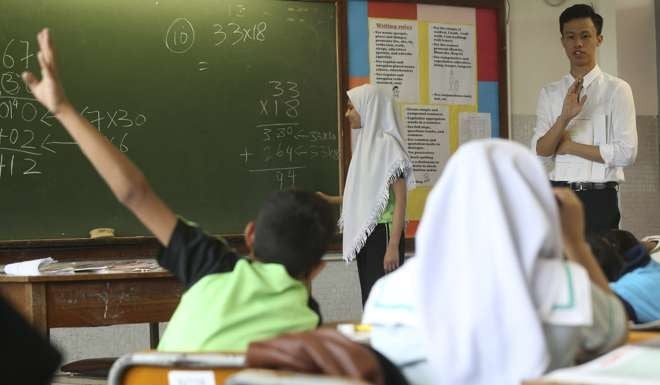Hong Kong students’ lack of interest in maths and science should worry us
Paul Yip says although they do well in international rankings in maths and science, based on their school results, their relatively low confidence in, and enjoyment of, the subjects reflect poorly on our education system

Hong Kong’s students scored better in maths and science over past 20 years, international study finds
In addition, some 96 per cent of Hong Kong students at both levels achieved at least the lowest benchmark for the subject. We should be proud of our students for achieving such impressive results.
However, worryingly, the survey results suggested that Hong Kong students lagged behind others in feeling passionate about learning maths and confident about the two subjects. Only 25 per cent of Hong Kong Primary 4 students were very confident in science, compared with the international average of 40 per cent.
This is a wake-up call for Hong Kong educators.
Hong Kong slips to new low in international ranking for student performance in science

Hong Kong Primary Three pupils sail through revised maths test, but balk at English composition
For a long time, some people have complained that our academic syllabus is too hard. Some schools even speed up their teaching of maths so the class is one level ahead. This sort of arrangement might benefit the gifted few but it is a very unsatisfactory arrangement for the rest, who struggle to catch up.
Our students are so preoccupied with learning how to game the system that true learning has been all but forgotten
If the usual syllabus was taught at the usual pace, most students would have no problems. So, why make students feel discouraged, through no fault of their own?
This is not the way to improve students’ maths skills. Instead of teaching one level up, teachers should make the learning process more interesting. At present, the process itself is too exam-oriented.
Many parents spend a sizeable portion of their income on extra tutorial classes for their children in the private market. Unfortunately, these classes do not teach students about the subjects at all, but rather grill them on exam techniques so they can ace the tests.
Our students are so preoccupied with learning how to game the system that true learning has been all but forgotten.
This exam-oriented mentality has even spread to universities and undergraduates now sometimes show little interest in whatever isn’t in an exam.